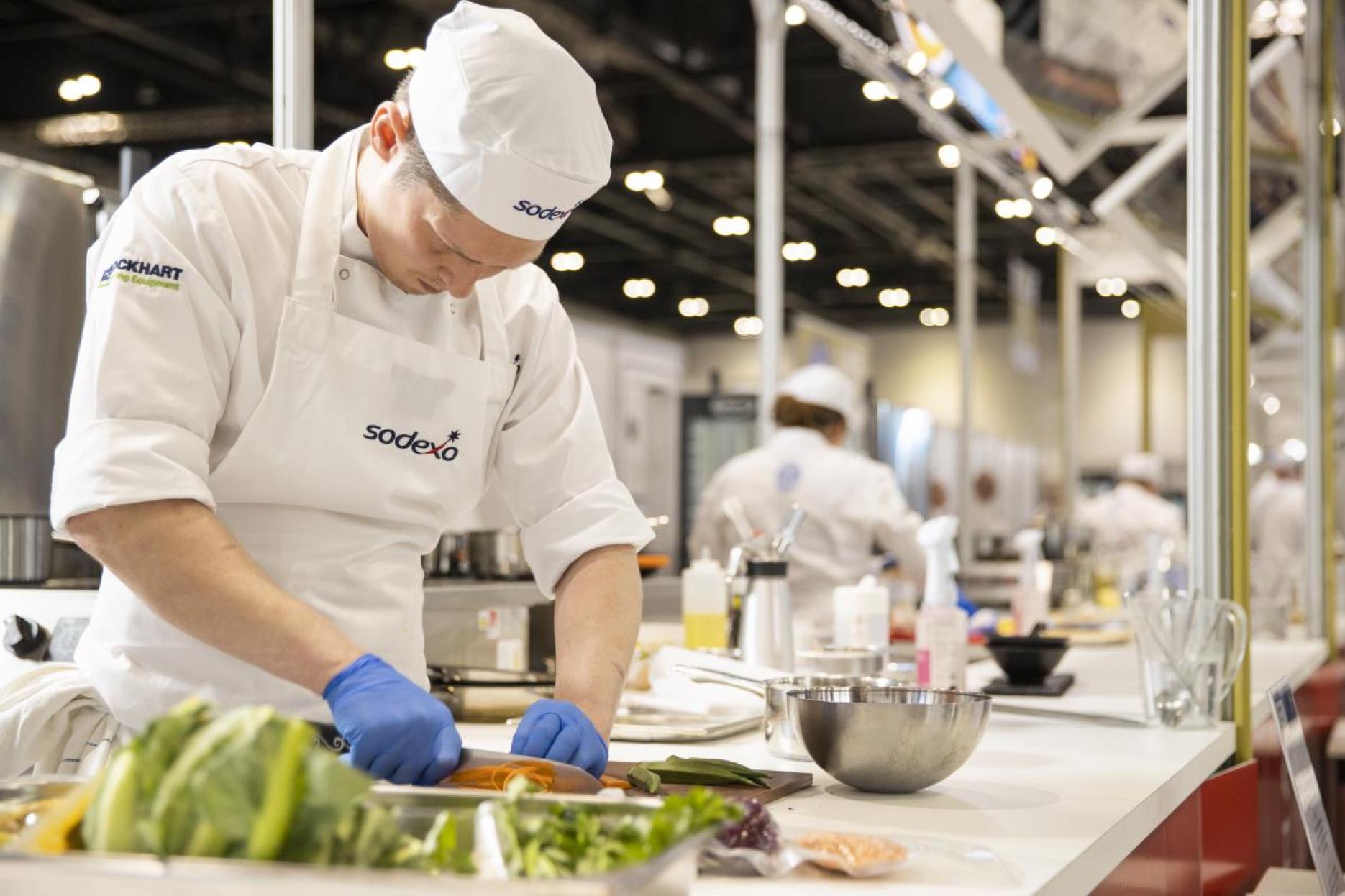
Sodexo reveals seven finalists for Chef of the Year competition
The competition spotlights the ‘brightest talents’ within Sodexo’s culinary community where they showcase their skills, creativity and dedication to sustainable food. The seven finalists include:
- Joshua Thompson, Government
- Paige Flynn, Sodexo Live!
- Dermot Staunton, Corporate Services, Ireland
- Chris Ormshaw, Energy & Resources
- Bruno Boris Bilota, Health & Care
- Anthony Dye, Corporate Services
- Andy Ridewood, Schools & Universities
Sodexo will host a mentor day for the seven finalists in November where they will receive feedback to refine their skills and perfect their dishes ahead of the live final in February 2025.
At the live final each chef will be tasked with creating three plant-based dishes that highlight both creativity and sustainability:
- Grab-and-Go Boxed Salad: A tasty plant-based salad featuring at least two Future50 ingredients, combining sustainability with on-the-go convenience.
- Main Course: A plant-based main using fresh, locally sourced British or Irish ingredients, designed to impress as a chef’s special or brasserie-style entrée.
- Street Food: A handheld, seasonal street food dish bursting with bold flavours, easy to eat and packed with innovation.
The finalists’ creations will be judged not only on taste but also on their alignment with Sodexo’s commitment to healthy, sustainable and delicious food. The cumulative scores across all three dishes will determine who earns the title of Chef of the Year 2025.
Matt Hay, head of culinary at Sodexo UK & Ireland, said: “Everyone at Sodexo is eagerly anticipating February’s final. We are incredibly proud of our chefs for embracing our sustainability goals through their innovative culinary creations. The focus on delivering plant-based, great-tasting dishes perfectly aligns with Sodexo’s food strategy and our commitment to achieving net zero. We wish all the finalists the very best of luck.”
By 2030, Sodexo has pledged that 70% of main dishes across its UK and Ireland sites will be low-carbon, with a target carbon footprint of just 0.9 kg CO2e—well below the current average of 2-2.5 kg CO2e.
